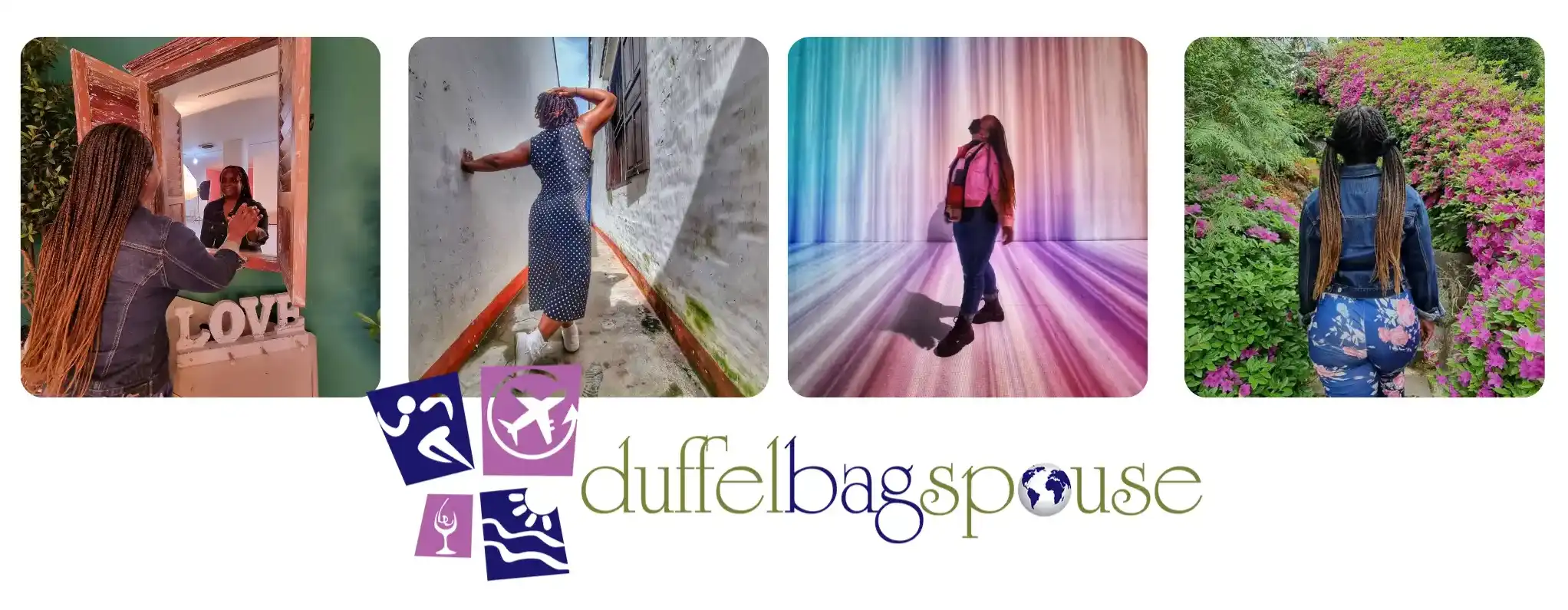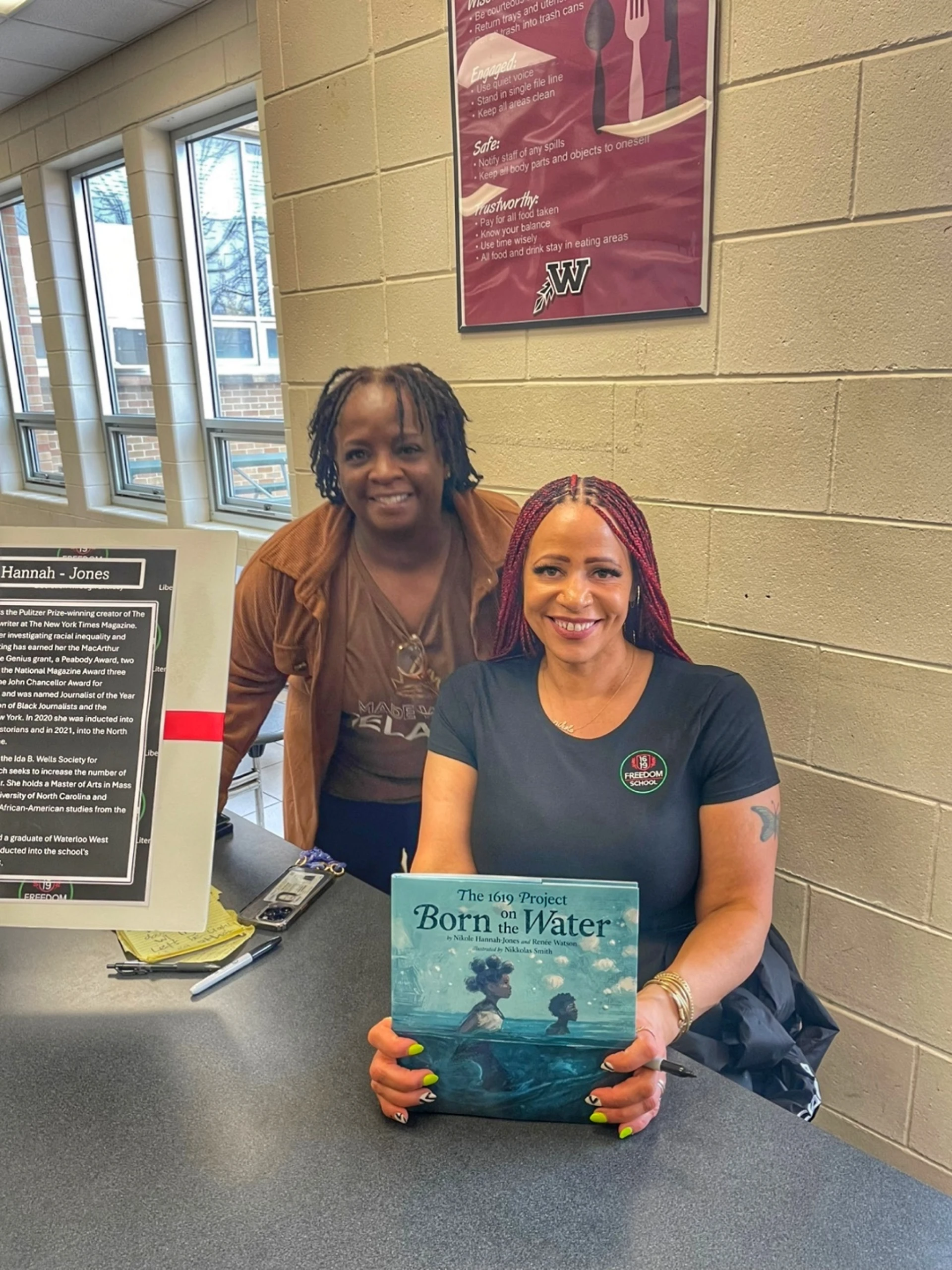|
Getting your Trinity Audio player ready...
|
Pulitzer Prize-winning journalist Nikole Hannah-Jones joined authors Jacqueline Woodson, Derrick Barnes, and Tammy Charles for a Read-In at West High School in Waterloo, Iowa. In a state where banned books. They are on the rise. The authors read stories that celebrate and uplift Black life—stories that some want removed from schools and libraries. Their presence sent a clear message: these stories matter, and they won’t disappear without a fight.
Table of Contents
- Waterloo’s Black History
- Reading as Resistance
- Lessons From My Father
- Selected Readings: Books That Were Read
- Attacks on Black Literature
- Our Voices Will Continue

Steven and I were in the Waterloo area for the weekend and knew we had to be there. This wasn’t just another book event—it was a direct response to local schools canceling their African American Read-Ins. Instead of accepting that decision, Hannah-Jones and the authors brought the books straight to the community. But despite how important this moment was, local news stations refused to cover it. Banned books hold the truths some fear most, yet their absence speaks louder than their words. Erasing them only fuels the fight to be heard and why events like this are so important.
Waterloo’s Black History
Waterloo has long been a cornerstone of Black culture in Iowa. The city has the largest Black population in the state and a deep history shaped by the Great Migration, when Black families moved north seeking better opportunities. These families built communities, businesses, and legacies—legacies now under attack as schools attempt to erase Black literature from their shelves.
Nikole Hannah-Jones, on the verge of tears, made one thing clear. She did not blame the school district for canceling the Read-In or creating banned books lists. Instead, she pointed to the toxic environment created by state leadership. Right-wing adversary groups pressured schools into compliance. Educators, librarians, and administrators became targets—the fear of losing funding forced schools into impossible decisions.

Oral History
Oral history anchors Black culture, preserving stories, wisdom, and resistance when others forbade reading and writing. It passes down traditions, lessons, and survival strategies. Griots in West Africa kept history alive through storytelling, and enslaved people in America used oral narratives, spirituals, and coded messages to communicate and resist oppression.
Frederick Douglass famously stated, “Knowledge makes a man unfit for slavery.” Those who sought to keep Black people in bondage understood this truth, which is why literacy was deliberately denied. The Read-In in Waterloo continued that long tradition, ensuring stories of resistance, resilience, and excellence endure, no matter who tries to silence them.

Reading as Resistance
West High School, where today’s Read-In took place, has served as a gathering space for generations of students. Holding the event inside a school defied the same institutions that canceled African American Read-Ins, making the moment even more powerful.
This location held even greater significance because Nikole Hannah-Jones is a graduate of West High School. Her return to these halls as a Pulitzer Prize-winning journalist and activist was a full-circle moment. She stood not just as an accomplished writer, but as a former student determined to ensure that the next generation has access to the stories, history, and knowledge that shaped her own path.
Today’s Read-In was more than just an event—it was a declaration. It was a refusal to let institutions erase Black voices from schools and libraries.
At a time when book bans and curriculum restrictions threaten to silence diverse perspectives. This gathering reaffirmed the power of storytelling. It revealed that knowledge depends not only on what we teach but also on what we deliberately leave out. By coming together in this space, we honored the voices that have shaped our history and the ones that will define our future.

Lessons From My Father
My father was a strict disciplinarian when it came to reading. He always said that powerful people hide knowledge in books, so we must become strong readers to uncover it. He believed literacy was a tool of empowerment, a way to ensure we were never left out of the conversation. That lesson stayed with me, and today’s event reinforced just how right he was.
As a result, I received an exceptional education in Black history—far beyond Martin Luther King Jr., Malcolm X, and Rosa Parks. I knew about the Harlem Renaissance, the Tulsa Massacre, and the impact of Black Wall Street. I studied the complexities of Reconstruction, the brilliance of Black inventors, and the global influence of the African diaspora.
But what I didn’t realize was how much had been intentionally left out. Since leaving school, I have learned so much more, and that has been by design. The gaps in our education are not accidental. They are deliberate choices meant to limit understanding, to downplay the full scope of Black contributions. They try to keep power in the hands of those who control the narrative.

Selected Readings: Books That Were Read
As we listened to readings from The Day You Begin by Jacqueline Woodson, All Because You Matter by Tammi Charles, and I Am Every Good Thing by Derrick Barnes, it was clear that these stories do more than entertain. They validate experiences, celebrate Black joy, and remind young readers that their stories belong in classrooms and libraries.
None of the books contained imagery or words inappropriate for any child—Black, white, or purple. They spoke of love, self-worth, and belonging, yet these are the very stories some seek to remove from schools. The attempt to silence them is not about content but about control.
Students Reading 1619 Project
One of the most powerful moments came when students from the 1619 Freedom School read excerpts from The 1619 Project, a book that has been at the center of national debates on history and race. Hearing young voices read passages that challenge the traditional narrative of American history was a reminder of why book bans exist in the first place.
They are not about protecting children—they are about controlling what children are allowed to know. Banned books reveal whose stories make people uncomfortable and why.

Attacks on Black Literature
There has been a growing push to frame Diversity, Equity, and Inclusion (DEI) efforts as “divisive” or “unnecessary.” Today’s Read-In exposed the lie behind that argument.
Book bans claim to protect children but actually suppress knowledge, controlling what they can learn. They erase perspectives that challenge dominant narratives, especially on race, identity, and social justice. But no one can erase history, and people will keep telling these stories—in books, classrooms, and Read-Ins like this one.
PEN America has been tracking censorship efforts nationwide, and the fact that 37% of the country’s book bans occur in Iowa is alarming. It also suggests a concentrated effort to control narratives. This limits access to diverse perspectives, and suppresses certain voices.
The 60% of banned books in Waterloo featuring people of color or LGBTQIA+ individuals reflects a broader pattern seen across the country. However, many of these bans disproportionately target stories that promote diversity, inclusion, and historical accuracy. It raises questions about who gets to shape history and whose stories are considered “acceptable.”

Our Voices Will Continue
Steven and I deeply appreciated the event, which came together in just two weeks. The dedication and urgency behind it made the gathering even more powerful. We want to extend our gratitude to all the sponsors who contributed—whether by donating funds, providing books, or simply recognizing the vital role Black literature plays in shaping history, identity, and truth. Their support ensured that these stories reached the hands of those who need them most.
This fight is far from over. Penguin Books, the publisher of The 1619 Project, has filed a lawsuit against the state of Iowa, challenging its censorship of diverse literature.
Their case argues that the state’s book bans violate the First Amendment, setting the stage for a legal battle that could have nationwide implications.

Waterloo showed up. And we will keep showing up—because our stories matter. We also need to stand up for the sponsors above because they stood up for us.
Like it.Pin it.

I love sharing my travel stories, lessons from life abroad, and tips for curious travelers. If my work has inspired you or made you smile, please buy me a coffee.
My articles are available as mobile apps for offline reading and GPS-assisted directions. Download my articles on GPSMyCity. This post contains sponsored and/or affiliate links. If you click these links, I may earn a small commission. Your support helps me keep the blog running—at no cost to you.
Discover more from Duffel Bag Spouse Travels
Subscribe to get the latest posts sent to your email.


